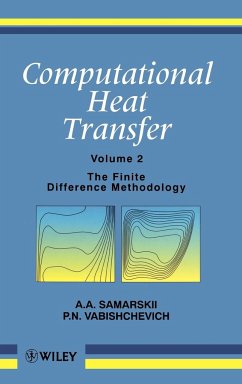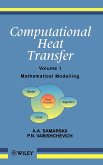This book, which is published in two volumes, studies heat transfer problems by modern numerical methods. Basic mathematical models of heat transfer are considered. The main approaches, to the analysis of the models by traditional means of applied mathematics are described. Numerical methods for the approximate solution of steady- and unsteady state heat conduction problems are discussed. Investigation of difference schemes is based on the general stability theory. Much emphasis is put on problems in which phase transitions are involved and on heat and mass transfer problems. Problems of controlling and optimizing heat processes are discussed in detail. These processes are described by partial differential equations, and the main approaches to numerical solution of the optimal control problems involved here are discussed. Aspects of numerical solution of inverse heat exchange problems are considered. Much attention is paid to the most important applied problems of identifying coefficients and boundary conditions for a heat transfer equation. The first volume considered the mathematical models of heat transfer, classic analytical solution methods for heat conduction problems, numerical methods for steady-state and transient heat conduction problems, and phase change problems. In this second volume, we present solution techniques for complicated heat transfer problems (radiation, convection, thermoelasticity, thermal process control and inverse problems) as well as some examples of solving particular heat transfer problems.
Hinweis: Dieser Artikel kann nur an eine deutsche Lieferadresse ausgeliefert werden.
Hinweis: Dieser Artikel kann nur an eine deutsche Lieferadresse ausgeliefert werden.








